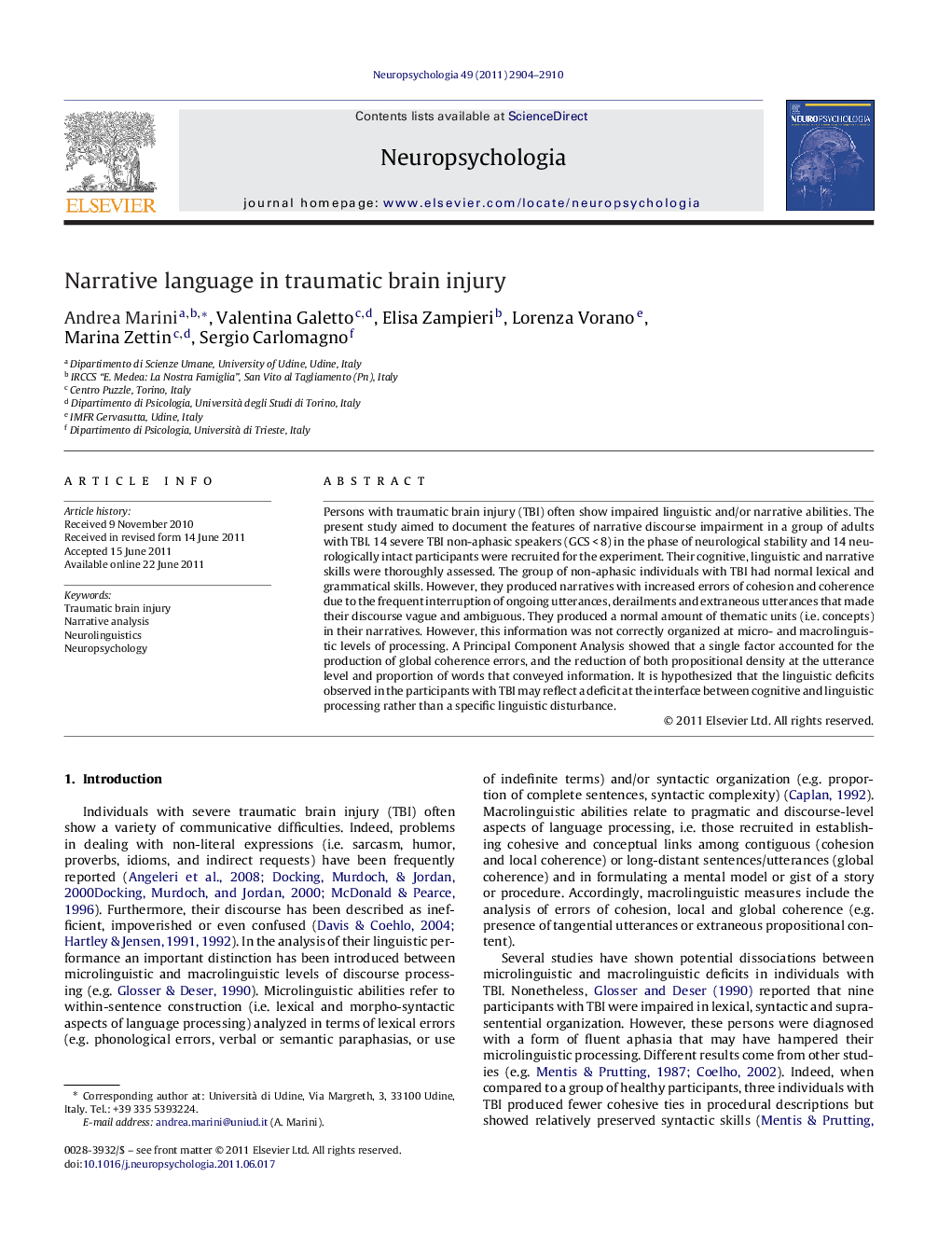| Article ID | Journal | Published Year | Pages | File Type |
|---|---|---|---|---|
| 944892 | Neuropsychologia | 2011 | 7 Pages |
Persons with traumatic brain injury (TBI) often show impaired linguistic and/or narrative abilities. The present study aimed to document the features of narrative discourse impairment in a group of adults with TBI. 14 severe TBI non-aphasic speakers (GCS < 8) in the phase of neurological stability and 14 neurologically intact participants were recruited for the experiment. Their cognitive, linguistic and narrative skills were thoroughly assessed. The group of non-aphasic individuals with TBI had normal lexical and grammatical skills. However, they produced narratives with increased errors of cohesion and coherence due to the frequent interruption of ongoing utterances, derailments and extraneous utterances that made their discourse vague and ambiguous. They produced a normal amount of thematic units (i.e. concepts) in their narratives. However, this information was not correctly organized at micro- and macrolinguistic levels of processing. A Principal Component Analysis showed that a single factor accounted for the production of global coherence errors, and the reduction of both propositional density at the utterance level and proportion of words that conveyed information. It is hypothesized that the linguistic deficits observed in the participants with TBI may reflect a deficit at the interface between cognitive and linguistic processing rather than a specific linguistic disturbance.
• We analyzed narrative discourse in severe TBI non-aphasic speakers. • They had adequate microlinguistic skills and could identify a good amount of information. • However, they could not organize it at either micro- or macrolinguistic levels of narrative processing. • These symptoms may reflect a deficit at the interface between cognitive and linguistic processing.
